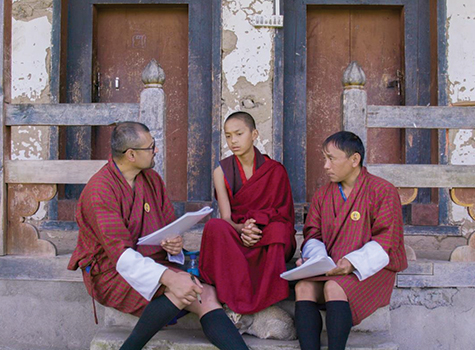This unpredictable election cycle rolls on. After many establishment candidates have dropped out of the presidential race, the selection of party nominee is winding down. Among the remaining candidates on both sides, there is one in each party seeking and fomenting some type of political or populist revolution. Democrat Bernie Sanders is seeking a political revolution while Republican Donald Trump is unhinging the establishment with his quasi-populist revolution.
Revolutions have a history of fizzling out, sometimes rather quickly. They overpromise and people are rarely happy with the results or the lack of results.
What gets things done in the end is not revolution, but evolution, goaded by centrists. Political, social and cultural changes require evolving ethos and financial structures that slowly peel away the status quo and bring economic parity.
Incremental change is natural and generally achieves a lot more in the end. Throughout the centuries, incremental social evolution has unraveled economic and social strata. In a sense both Sanders and Trump are populists, campaigning with their own grand statements and theories that have little bearing on reality and cannot be implemented with simpleton slogans. I understand both candidates, but their policy math simply doesn’t add up.
Trump is a brash bully looking to get things done his way. Sanders is the alarmist grandfather genuine in his beliefs. Both are obviously tapping into sentiments on either political spectrum with the status of our union. But the status of our union is strong, this is still the land of dreams and opportunity. The problems we face are quite real and can be solved with thoughtful, long-term sustainable solutions. Greed, prejudice, selfishness, corruption, polarization, distrust, these have been with us since humans have walked the Earth and unfortunately will remain so. As long as majority of people seek to find solutions and work for a better future, those crutches can be minimized.
The Republicans are down to three candidates where Ted Cruz may yet sneak up on Donald Trump for the nomination while John Kasich just wants to hold out till the Republican convention.
The remaining Democrats are essentially 95 percent similar, but their modus operandi are different. Hillary Clinton simply hopes to keep winning with the same margin she has racked up against Sanders and eke out the nomination, although the FBI email investigation is still looming and may make a play.
Trump and Clinton are the likely candidates, barring any unforeseen flameouts, though it doesn’t look like the Democrats will finalize their candidate at least till end of April. The Republicans are headed to an open convention, unless Trump simply dominates in April. The brawls continue.
Presidents and Executive Orders
According to the National Archives, more than 13,000 executive orders have been issued by presidents since 1789, from George Washington to Barack Obama. The general consensus is that while there is no specific provision in the Constitution that permits them, there is a “grant of executive power” given in Article II, Section 1 of the Constitution. Presidents issue executive orders on everything from domestic policy to going on war footing. Executive orders do not require Congressional approval to take effect but they have the same legal weight as laws passed by Congress. Some of these orders are signed to bypass an unfriendly Congress, thus creating controversy. This election cycle, Republican presidential candidates have made President Obama’s executive orders an issue. Executive orders are legally binding—the U.S. Supreme Court has upheld all but two legal challenges to them. One way to undo an executive order of a president is for a subsequent president to legally reverse it by signing their own executive orders. The Congress is not required to approve any executive order, nor can it overturn an order. Congressional representatives can pass their own law to cut or reduce funding for any specific order. Of course, the president can in turn veto such law. I looked into the number of executive orders issued by presidents over the past few decades.
Here are the numbers of executive orders issued by each president since about the end of World War II.
Harry S. Truman 896
Dwight D. Eisenhower 486
John F. Kennedy 214
Lyndon B. Johnson 324
Richard Nixon 346
Gerald R. Ford 169
Jimmy Carter 320
Ronald Reagan 381
George H. W. Bush 166
Bill Clinton 364
George W. Bush 291
Barack Obama (as of 12.31.15) 219
Source: National Archives – www.archives.gov/federal-register/executive-orders…
Updates on the ongoing election cycle
In the North Carolina primaries held on March 15, Governor Pat McCrory won the Republican primary and will face Democratic primary winner Roy Cooper in the general election in November. Senator Richard Burr survived the Republican primary and will face challenger Deborah Ross, the winner of the Democratic primary. Since the state’s congressional redistricting is currently in limbo, the North Carolina congressional primary will be held on June 7.
Upcoming Primaries and Caucuses
April 5: Wisconsin
April 9: Wyoming
April 19: New York
April 26: Connecticut, Delaware, Maryland, Pennsylvania, and Rhode Island
May 3: Indiana
May 7: Guam Democratic caucus
May 10: Nebraska Republican Primary and West Virginia
May 17: Kentucky Democratic Primary and Oregon
May 24: Washington State Republican Primary
June 4: Virgin Islands Democratic caucus
June 5: Puerto Rico Democratic Caucus
June 7: California, Montana, New Jersey, New Mexico, North Dakota Democratic Caucus, and South Dakota
June 14: District of Columbia Democratic Primary
Party National Conventions
Libertarian National Convention
May 27 – 30, Orlando (LP.org)
Republican National Convention
July 18 – 21, Cleveland Ohio (Gop.org)
Democratic National Convention
July 25 – 28, Philadelphia (Democrats.org)
Some Regional Voter Resources
North Carolina State Board of Elections: http://www.ncsbe.gov/ncsbe/
South Carolina State Election Commission: http://www.scvotes.org/
Georgia Secretary of State/Elections: http://sos.ga.gov/index.php/?section=elections
Virginia Dept. of Elections: http://elections.virginia.gov/



